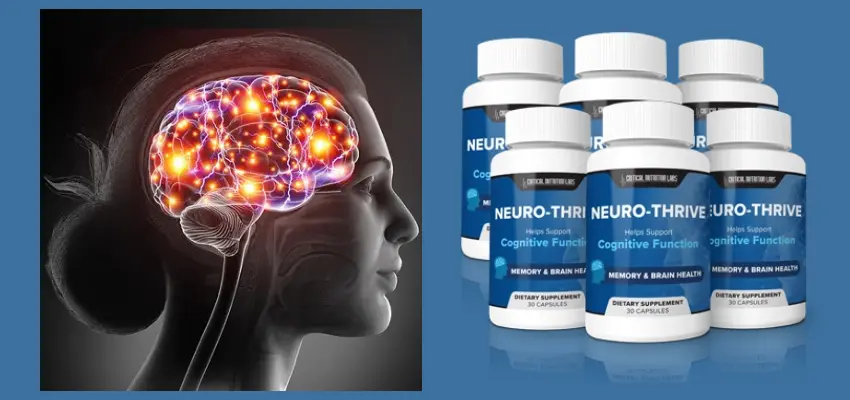Are you finding it hard to lose weight, even with diet and exercise? If you have hypothyroidism, losing weight might seem like a big challenge. Your thyroid hormone levels could be the key to why you’re not losing weight like you want to.
Losing weight with hypothyroidism is not impossible. People with this condition face big challenges because their metabolism can slow down by up to 50%. This makes losing weight much harder. It affects how your body burns calories and uses energy, making it harder than usual to lose weight.
Knowing what to eat is very important. Your metabolism relies on thyroid hormones T3 and T4. These hormones help your body turn food into energy. When these hormones are low, losing weight can feel very hard. But, there are ways to overcome these challenges and lose weight effectively.
This guide will show you how to manage your weight with hypothyroidism. We’ll look at special diets, exercise tips, and lifestyle changes. These can help you reach your health and weight loss goals.
Table of Contents
ToggleUnderstanding the Thyroid-Weight Connection
Your thyroid gland is key to managing your weight and metabolism. Boosters for thyroid metabolism are vital for those who struggle with losing weight, especially those with hypothyroidism. If your thyroid slows down, it makes it hard for your body to burn calories and stay at a healthy weight.
The link between thyroid function and weight is complex. Low thyroid fat burning makes losing weight tough. Your basal metabolic rate (BMR) depends on thyroid hormone levels. So, an underactive thyroid can cut your body’s energy use by half.
- Thyroid hormones regulate metabolism and energy processing
- Hypothyroidism can reduce metabolic rate by up to 50%
- Weight gain is often linked to decreased thyroid function
Thyroid-friendly weight loss strategies involve understanding how hormones affect your body. Studies show people with hypothyroidism often gain 5-10 pounds because of metabolic changes. The condition changes how your body handles nutrients, especially sugars and carbs.
“Your thyroid is like a metabolic thermostat, controlling how efficiently your body burns calories.”
Key factors in your hypothyroidism diet should support thyroid function and boost metabolism. Weight loss tips for those with thyroid issues include:
- Eating nutrient-dense foods
- Managing portion sizes
- Incorporating metabolism-supporting nutrients
Understanding this complex thyroid-weight connection is the first step to effective weight management for those with hypothyroidism.
How To Lose Weight With Hypothyroidism
Managing weight with hypothyroidism needs a full plan. This includes nutrition, exercise, and lifestyle changes. Start by understanding how your thyroid affects your metabolism. Then, find strategies that support your health.
Dietary Strategies for Thyroid Health
Creating a diet for hypothyroidism means choosing the right foods. Your diet should help your thyroid and aid in weight loss.
- Reduce carbs and focus on complex carbohydrates from vegetables and legumes
- Eat smaller meals more frequently to maintain steady energy levels
- Include thyroid-friendly recipes with lean proteins and healthy fats
- Consider hypothyroidism supplements like selenium and vitamin D
“Nutrition is a key player in managing hypothyroidism and supporting weight loss efforts.”
Exercise and Movement Strategies
Exercise boosts metabolism, which is key for hypothyroidism. Your workout should be gentle yet effective.
- Start with low-impact strength training
- Move your body for at least 30 minutes daily
- Focus on exercises that support metabolism
- Gradually increase exercise intensity
Lifestyle Modifications
More than diet and exercise is needed to balance hormones. Your lifestyle greatly affects weight management.
- Practice stress management techniques
- Get ample sleep, aiming for 7-9 hours nightly
- Maintain a consistent calorie deficit
- Talk to your healthcare provider about thyroid medication adjustments
Remember, losing weight with hypothyroidism is a personal journey. Work with healthcare professionals to create a plan that fits your needs.
Read Also:
Conclusion
Managing hypothyroidism symptoms needs a detailed and personal plan. With 1 in 300 Americans facing this, you’re not alone in your weight loss battles. Knowing that weight gain with an underactive thyroid is complex helps you find effective ways to manage your weight.
Your journey to better hormone regulation for weight loss begins with expert medical advice. Medications like levothyroxine can help, but adding dietary supplements and lifestyle changes can boost your results. Keeping a food journal can help you spot patterns and make better food choices.
Exercise is key in your weight management plan. Even with tiredness, regular activity can increase your metabolism and improve your health. Remember, losing weight with hypothyroidism is possible with a balanced approach of medical treatment, healthy eating, and exercise.
By staying dedicated to your health and working with healthcare experts, you can manage your weight and enhance your life quality. Your active role in understanding and treating hypothyroidism is crucial for reaching your wellness goals.
FAQ
Can I lose weight if I have hypothyroidism?
Yes, losing weight with hypothyroidism is possible. It needs a full plan. This includes medical treatment, diet changes, exercise, and lifestyle tweaks. Work with your doctor to find the right weight loss plan for you.
How does hypothyroidism affect weight loss?
Hypothyroidism slows down your metabolism. This is because your body makes less thyroid hormones T3 and T4. These hormones help turn food into energy. This makes it harder to lose weight and can cause fatigue.
It also affects other important hormones like leptin, ghrelin, insulin, and cortisol. These hormones play a big role in how your body manages weight.
What diet is best for losing weight with hypothyroidism?
Eating well is key for hypothyroidism. Focus on foods that are good for you and don’t cause inflammation. Eat more fiber, fruits, veggies, and lean proteins. Choose healthy fats from fish, seeds, and nuts.
Try to avoid simple carbs and foods that can slow down your thyroid. Drinking plenty of water and eating smaller meals can also help.
What types of exercise are recommended for hypothyroidism?
A mix of cardio and strength training is best. Do 30-60 minutes of moderate exercise like walking, cycling, or swimming five times a week. Do strength training with weights or bodyweight exercises at least twice a week.
Start slow and increase the intensity as you get more energy and less tired.
How important is sleep in managing hypothyroidism and weight loss?
Sleep is very important for managing hypothyroidism and losing weight. Aim for seven hours of good sleep each night. This helps regulate your metabolism and hormones.
Have a regular sleep schedule, a comfy sleep space, and avoid caffeine and big meals before bed. Good sleep balances your hormones, reduces stress, and gives you energy for exercise and daily life.
Should I take supplements for hypothyroidism weight loss?
Supplements can help with thyroid function, but talk to your doctor first. Supplements like selenium, iodine, and vitamin D might be helpful. But, they’re not a replacement for medical treatment, diet, and exercise.
Your doctor can suggest supplements based on your thyroid health and nutritional needs.
How long will it take to lose weight with hypothyroidism?
Losing weight with hypothyroidism takes longer than without it. It depends on your medication, diet, exercise, and metabolism. With consistent effort and medical help, you might see weight loss in months.
Focus on making lasting lifestyle changes, not quick weight loss. Work with your doctor to track your progress.
Can medication help with weight loss in hypothyroidism?
Thyroid hormone replacement medication is key for managing hypothyroidism. It can help with weight loss by improving your metabolism. But, medication alone won’t help you lose weight.
It works best with a healthy diet, regular exercise, and a good lifestyle. Regular checks of your thyroid hormone levels and medication adjustments can help your metabolism and weight loss.
References
6 Weight Loss Tips for Hypothyroidism – https://www.everydayhealth.com/hs/healthy-living-with-hypothyroidism/weight-loss/
Losing weight and hypothyroidism: Methods and more – https://www.medicalnewstoday.com/articles/how-to-lose-20-pounds-with-hypothyroidism
Thyroid and weight – the science – https://www.btf-thyroid.org/thyroid-and-weight-the-science
Diet and Weight Loss Tips for Thyroid Patients – https://www.verywellhealth.com/diet-and-weight-loss-tips-for-thyroid-patients-3233060
How to Control Your Weight with Hypothyroidism – https://www.healthline.com/health/hypothyroidism/managing-your-weight
Endocrinology, Diabetes and Thyroid Specialists – https://www.endocrinecenter.com/blog/how-can-i-fight-obesity-if-i-have-hypothyroidism
How to Lose Weight with Hypothyroidism – https://www.buzzrx.com/blog/how-to-lose-weight-with-hypothyroidism
5 Best Ways to Lose Weight If You Have Hypothyroidism, According to Dietitians – https://www.eatingwell.com/how-to-lose-weight-with-hypothyroidism-8647936
How to Lose Weight with Hypothyroidism | LifeMD – https://lifemd.com/learn/losing-weight-with-hypothyroidism-everything-you-need-to-know
Effects of a diet plus exercise program on thyroid function in patients with obesity – https://pmc.ncbi.nlm.nih.gov/articles/PMC7424834/













